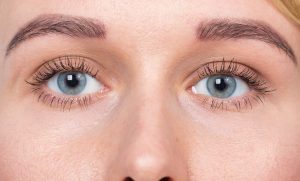
When the cornea becomes scratched, your ability to see becomes hindered and your risk for infection also increases. In order to reduce your risk of complications resulting from a scratched cornea, you should speak to your doctor right away.
Causes of a scratched cornea
There are many ways to get your cornea scratched. Essentially, anything that comes into contact with your cornea can cause a corneal abrasion.
People commonly scratch their cornea with tree branches, makeup brushes, a finger, workplace debris, sports equipment, sand, and dust. Contact lenses that have been worn for too long or are damaged can increase your risk of a corneal abrasion, too.
Natural remedies for a scratched cornea
- Try to remove the foreign object in your eye – this can be done with blinking. Do not try to remove it by sticking another object into your eye.
- Rinse out your eye.
- Apply eye drops for added lubrication.
- Apply a cold compress to the injured eye.
- Wear protective eyewear like goggles or sunglasses to reduce further injury.
- Don’t wear contacts days after the injury – allow for some healing to occur or wait your doctor’s approval.
- Avoid wearing an eye patch as it can increase the temperature of the eye, worsening the pain.
- Avoid rubbing your eyes.
- Eat a healthy diet to promote eye health – this means plenty of fruits and vegetables, and fish.
- Get plenty of rest.
When to see a doctor for a scratched cornea
Make an appointment to show your scratched cornea to your doctor if:
- The pain is constant or worsening
- You experience double vision or headache
- You feel dizzy or lightheaded
- You suspect that a foreign object is still in your eye
- You experience blurry vision, hypersensitivity to light, tearing, or serious pain
- You suspect that you have an open wound on the cornea
- You have green, yellow, or red pus coming from the eye
- You see flashes of light
- You have a fever
- You begin to experience any new symptoms
Seeing your doctor sooner rather than later can reduce your risk of any further complications that may arise as a result of a corneal abrasion.